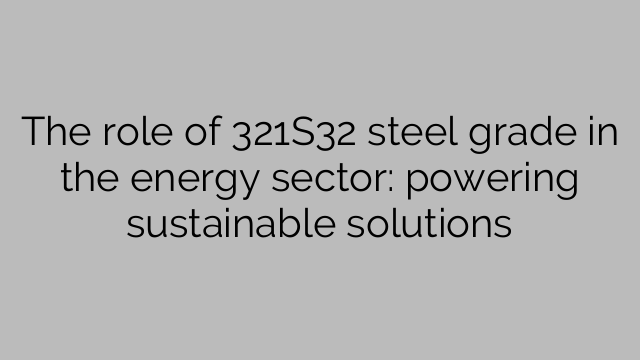The chemical composition of 321S32 steel grade plays a crucial role in its application in the energy sector. This steel grade is primarily composed of elements like chromium, nickel, and titanium. Chromium provides excellent resistance to corrosion, making it suitable for use in environments with high levels of moisture or chemical exposure. Nickel enhances the steel’s strength and toughness, while titanium stabilizes the structure and prevents sensitization to intergranular corrosion.
The mechanical properties of 321S32 steel grade also make it well-suited for the energy sector. The steel exhibits high tensile strength and good ductility, allowing it to withstand extreme mechanical stresses and deformations. Its resistance to fatigue and creep also makes it suitable for applications in high-temperature environments, such as power plants.
In terms of technical properties, 321S32 steel grade offers good weldability, which is crucial for constructing complex structures and components in the energy sector. Its compatibility with various fabrication techniques enables efficient manufacturing processes. Additionally, the steel grade can be easily formed into different shapes and sizes, facilitating the production of custom-designed equipment and structures for energy generation and distribution systems.
Overall, the role of 321S32 steel grade in the energy sector is vital in powering sustainable solutions. Its chemical composition, mechanical properties, and technical characteristics make it a reliable material for constructing and maintaining energy infrastructure, ensuring efficient and sustainable energy production and consumption.

